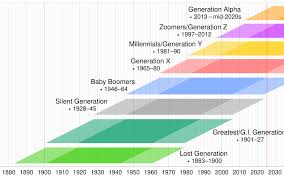
Introduction to Generation Z
Generation Z, commonly referred to as Gen Z, includes individuals born from the mid-to-late 1990s up until the early 2010s. This generation is critical as they are the first to grow up with widespread access to the internet and digital technology from a young age. Understanding Gen Z is integral to comprehending current social dynamics, economic trends, and cultural shifts.
Characteristics of Gen Z
Gen Z is known for its digital fluency, with many individuals using smartphones for communication, socialising, and education. Recent studies show that over 90% of Gen Z members own smartphones, and they spend an average of 3.4 hours daily on social media platforms such as Instagram, TikTok, and Snapchat. Their interactions are shaped by the immediacy and brevity of the online content they consume.
Moreover, Gen Z is characterised by a strong commitment to social issues including climate change, mental health, and inclusivity. A report from the Pew Research Center indicates that about 60% of Gen Z feels that their generation is more likely to be accepting of diversity compared to previous generations.
Economic Impact
Economically, Gen Z is poised to leave a significant mark. As they gradually enter the workforce, they bring distinct expectations with them. Unlike their predecessors, many Gen Z workers prioritise workplace flexibility and mental well-being over traditional job security and benefits. Companies are responding by adopting more inclusive and flexible working arrangements. For example, some have integrated mental health resources and programmes aimed at fostering a balanced work-life atmosphere.
Cultural Influences
Gen Z also heavily influences culture and trends. Their preferences shape the marketing strategies of brands, with a clear tendency towards authenticity and transparency. Brands that fail to resonate with Gen Z’s values risk alienating them. In the realm of entertainment, for instance, films and shows that highlight diverse narratives and ethically conscious storytelling have gained prominent traction.
Conclusion and Future Outlook
As Gen Z continues to grow into adulthood, their preferences and values will increasingly shape society. Their impact on culture, economy, and even political landscapes cannot be overstated. Their commitment to innovation, social justice, and mental health is likely to drive substantial changes in industries, prompting businesses and institutions to adapt. Understanding the years and experiences of Gen Z is vital for anticipating future trends and addressing the evolving needs of this dynamic generation.
You may also like

The Importance of Storytelling in Modern Society

Understanding the Fall Season: Change, Beauty, and Tradition
